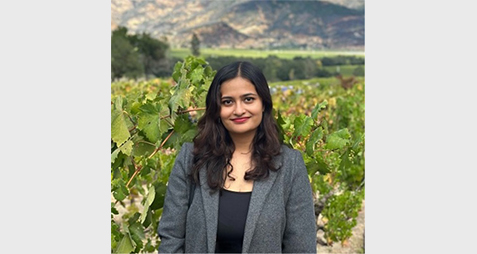Unveiling the Depths: Transforming Video with Deep Learning Expertise with Gauri Jagatap

Meet Gauri Jagatap, a pioneering researcher at Dolby Laboratories who is redefining video processing. With expertise in deep learning, she is transforming video applications to deliver groundbreaking experiences. An alumna of BITS Pilani (Goa, ‘10) with a dual degree in B.E in Electrical and Electronics Engineering and Physics, her passion lies in exploring the convergence of deep learning, computer vision, and signal processing.
How do you think your time at BITS Pilani shaped this career path for you? Were there any extracurricular activities, professors, or perhaps courses that played a significant role in guiding you along this path?
BITS has played a significant role in shaping the trajectory of my career. The dual degree program I pursued, encompassing Physics and Electrical and Electronics Engineering (EEE), has profoundly influenced my career direction. I had the opportunity to engage closely with faculty members from both departments, particularly Dr. Radhika and Dr. Kanan from the Physics department. Collaborating on course projects with them was highly motivating, as they were actively involved in cutting-edge research. Dr. Radhika's focus spanned from image processing to quantum information theory and quantum computation, while Dr. Kanan's expertise lay in semiconductor research. These diverse areas intrigued me as I explored various projects to discover my interests. Their guidance played a crucial role in shaping my academic journey.
Do you think you could have done anything differently in your BITS journey?
I didn't have many seniors, perhaps because I didn't actively seek them out. In hindsight, reaching out to more experienced individuals could have simplified my journey. Initiatives, like SARC contacting alums for their insights, can bridge this gap, exposing younger individuals to the experiences of those who have already walked the path they aspire to. Looking back, I wish I had been more aware of the steps to pursue my goals.
When did you realize that signal processing and image processing might be the path you wanted to pursue?
I prioritize practicality in my career choices. While passion is important, I consider other factors, such as job market demand. Fields like signal processing, image processing, and computer vision were gaining traction, and I anticipated their mainstream adoption would lead to ample job opportunities, providing a sense of job security.
How did your interest evolve into pursuing academia?
Growing up in the academic environment of Bhabha Atomic Research Center (BARC) due to my father's employment, I developed a keen interest in signal processing and communications courses, particularly drawn to their mathematical and statistical aspects. This fascination sparked a desire to delve deeper into these subjects, propelling me towards higher education in pursuit of further knowledge and the opportunity to work on what I love. Ultimately, it was a combination of these factors that influenced my decision.
Looking back, how did your peer group shape your life at BITS?
I was a member of the IEEE student chapter. I was inspired by the diverse projects my peers were undertaking. Surrounded by entrepreneurial individuals, I engaged in discussions about computer vision and neural networks, concepts not typically covered in my core EEE courses. These interactions exposed me to these fascinating ideas, broadening my understanding beyond the traditional curriculum.
Is it a stereotype that as you advance into senior or managerial positions, the learning curve plateaus compared to the continuous learning experience in research or technical roles?
In my observation, there are two main career trajectories: managerial and technical. Each has distinct paths, such as traditional managerial roles and technical leadership positions. I don't necessarily agree with this division, especially for technical managers who need to maintain deep technical knowledge across various projects as they advance. While standard managerial roles focus more on overseeing high-level operations, technical leadership requires understanding the technical implementation details of diverse projects.
Unveiling the Depths: Transforming Video with Deep Learning Expertise with Gauri Jagatap
Unveiling the Depths: Transforming Video with Deep Learning Expertise with Gauri Jagatap
You Might Also Like
- BITS to Baker Hughes: Shad Hussain’s Journey Through Turbulent Times
- Be Cool: Navigating Life, Literature, and Mental Health with Shashi Warrier
- Coaching Across Cultures: Brajesh Bajpai’s Journey of Learning, Leading, and Adapting
- From Engineer to AI Leader: An Interview with Akhil Singhal on Startups, Strategy, and the Future of Gen A
- From Circuits to Capital Markets: Deepak Joshi’s Global Finance Journey














